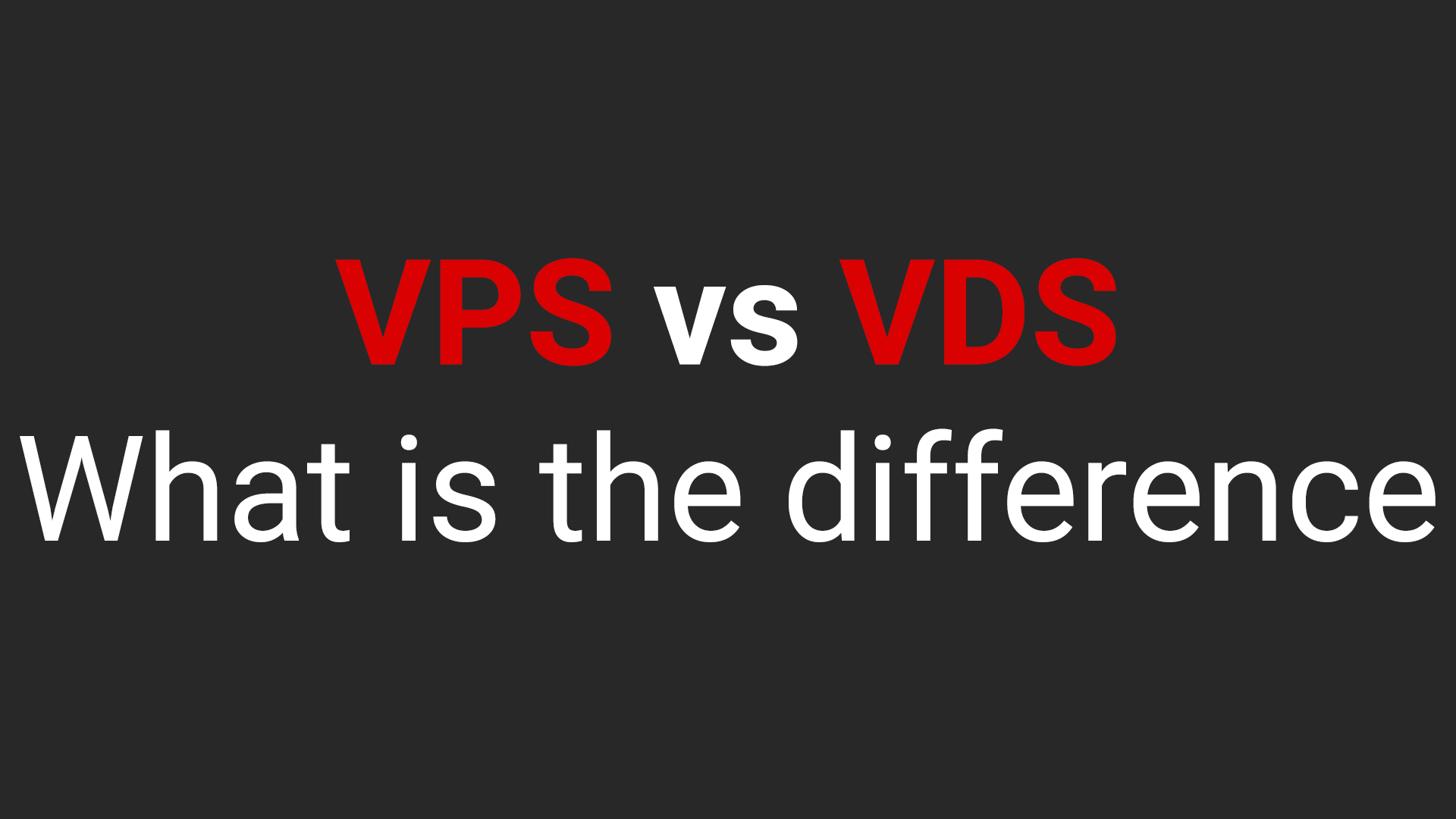VPS vs VDS: what is the difference

If you are planning to host your website, application, game server, or streaming service, then choosing the right hosting is key. There is often confusion between VPS and VDS, but understanding their differences will help you make the right choice. In this article, we will look at when and what is better to choose, which is cheaper, and why a VPS is not always the best option.
VPS vs VDS: what is the difference?
At first glance, VPS (Virtual Private Server) and VDS (Virtual Dedicated Server) may seem identical. Both provide you with a virtual part of the physical server, with its own set of resources and root access. This allows you to install any software and take full control of your environment.
However, the key difference lies in the virtualization technology.
- VPS uses virtualization technology at the operating system level, for example, OpenVZ. In this case, the operating system kernel is shared by all virtual servers on the same physical device. This makes it less isolated and more vulnerable to "noisy neighbors" — other users who may consume too many resources, which affects the performance of your server. For example, if your “Neighbor” has a demanding program installed and running, then this may have a bad effect on the performance of your server.
- VDS uses hardware virtualization, such as KVM (Kernel-based Virtual Machine). This technology creates a completely isolated virtual machine that behaves like a separate physical server. Each VDS has its own core, which ensures complete independence and ensures that allocated resources (CPU, RAM, disk space) will not be redistributed in favor of other users. This makes VDS more stable and predictable. In other words, you don't have to worry about the “Neighbors” and the fact that their actions may negatively affect the performance of your server.
What to look for when choosing
The choice between VPS and VDS depends on your specific needs. Here are the main factors worth paying attention to:
- Performance and stability. If your project requires guaranteed performance and does not tolerate drawdowns, for example, online games, streaming or highly loaded web applications, then VDS is your choice. Its complete isolation and dedicated resources ensure stable operation. It's like taking a dedicated server, but with lower features and at a better price.
- Scalability. Both types of hosting can be scaled by adding resources as the project grows. However, if you are planning a rapid and significant expansion, make sure that your provider offers flexible data plans and the ability to upgrade quickly. If your provider cannot offer you what you need, you can contact us.
- Safety. Due to its complete isolation, VDS provides a higher level of security. Problems on one virtual server will not affect the others. This is a very important point because the VPS has this problem. We discussed this in more detail in the video below.
- Cost. As a rule, a VPS is cheaper because it requires fewer resources for virtualization and management. VDS, due to its hardware isolation, has a higher cost, but it is justified by increased performance and reliability.
- The operating system. Make sure that the provider allows you to select and install the necessary OS (Windows, various Linux distributions), and also provides full root access. Not all hosting providers are ready to provide full root access and provide only a user with Sudo rights.
Why is VDS more suitable for streaming and game servers?
For projects that require constant and high levels of performance, such as game servers and streaming platforms, VDS is the optimal solution. I have personally run game servers (CS2, GTA Online, Minecraft) on both types of servers (VPS and VDS) and I can say that VDS is much better for projects where stability is needed.
Guaranteed resources: Online gaming and video streaming are sensitive to ping delays and FPS drawdowns. On VDS, CPU, RAM, and disk space resources are strictly allocated and cannot be used by other users, which ensures minimal ping and smooth gameplay.
Isolation: If another user runs a resource-intensive task on one server, this will not affect your project on VDS in any way. This is critically important for stable operation of game servers with a large number of players or for uninterrupted streaming in high resolution.
Full control: VDS allows you to install any software, configure the OS kernel and optimize the server for specific tasks. This is especially important for game servers, where specialized settings and modifications are often required.
If it seems to you that this information is not enough, then check out the video that we shot, it also describes the difference between VPS and VDS.
Conclusion
Choosing between VPS and VDS is a balance between cost, performance, and level of control. If your project does not require maximum performance and you want to save money, a VPS is a good choice. However, if stability, security, and guaranteed resources are your priority (especially for game servers and streaming), then VDS is an investment that will pay off with reliability and quality of work.
Author: Anatolii Cohaniuc

